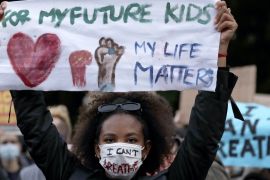Investing in green industries, social services and climate resilience can help Haiti recover and regain security.


Edna Bonhomme is a historian of science and writer based in Berlin who earned a PhD in the history of science from Princeton University and a Master o... f Public Health from Columbia University. Working with sound, text, and archives, Bonhomme explores contagion, epidemics, and toxicity by asking: what makes people sick? Bonhomme narrates how people perceive modern plagues and how they try to escape from them through critical storytelling. Bonhomme’s first book Tending to our Wounds: A History of Haiti, Harlem, Berlin, and Me (Haymarket Press) explores the global history of restitution and reparations for the African diaspora will be published in 2022. Bonhomme is currently writing a second book, Captive Contagions (One Signal/Simon & Schuster) which examines the role that captivity has played during epidemics. Bonhomme has written for The Atlantic, The Baffler, Esquire, The Guardian, The Nation, The New Republic, and other publications.
Investing in green industries, social services and climate resilience can help Haiti recover and regain security.

What can an exhibition on 19th-century migrants in Berlin tell us about Germany’s current relationship with migration?

This International Women’s Day, let’s start working towards ending gender discrimination in science for good.

It is not a coincidence that Haitians have the lowest asylum acceptance rates in the US and are deported en masse.
![US Customs and Border Protection mounted officers try to push back asylum seekers, as they cross the Rio Grande from Ciudad Acuña, Mexico, into Del Rio, Texas on September 19, 2021 [AP/Felix Marquez]](https://www.aljazeera.com/wp-content/uploads/2021/09/AP21267070202061.jpg?resize=270%2C180&quality=80)
One cannot understand what is going on in Haiti without considering its long history of violent foreign intervention.
![Demonstrators take part in a march during a protest against Haiti's then-President Jovenel Moïse, in Port-au-Prince, Haiti, February 14, 2021 [File: Jeanty Junior Augustin/Reuters]](https://www.aljazeera.com/wp-content/uploads/2021/02/2021-02-15T003412Z_698968940_RC2OSL938CRB_RTRMADP_3_HAITI-POLITICS.jpg?resize=270%2C180&quality=80)
This holiday provides Americans with an opportunity to look at history from the point of view of the oppressed.
![A woman raises her fist during events to mark Juneteenth, which commemorates the end of slavery in Texas, two years after the 1863 Emancipation Proclamation freed slaves elsewhere in the United States, amid nationwide protests against racial inequality, in the Harlem neighbourhood of Manhattan, in New York City, New York, June 19, 2020 [Andrew Kelly/Reuters]](https://www.aljazeera.com/wp-content/uploads/2021/06/RTS3EKUW.jpg?resize=270%2C180&quality=80)
It is a reminder of the erasure of Black feminist struggles.
![Picketers representing the National Association of Colored Women march past the White House in Washington, DC, July 30, 1956, carrying posters protesting the lynching of four Black people in Georgia [File: AP]](https://www.aljazeera.com/wp-content/uploads/2021/03/AP_460730021.jpg?resize=270%2C180&quality=80)
Alongside the pandemic and its impacts on the economy, the US is also facing a growing debt crisis.

Western scientists used Africa as a living laboratory during the sleeping sickness epidemics of the early 20th century.
![The head of Germany's Robert Koch Institute (RKI), Lothar Wieler, poses next to a bust of Robert Koch after addressing a news conference on the spread of the coronavirus disease (COVID-19), in Berlin, July 28, 2020. [Tobias Schwarz/Pool via Reuters]](https://www.aljazeera.com/wp-content/uploads/2020/10/RTX7M84G.jpg?resize=270%2C180&quality=80)
This long-standing myth of American racism, tied to its obsession with Black sexuality, is harming women to this day.
